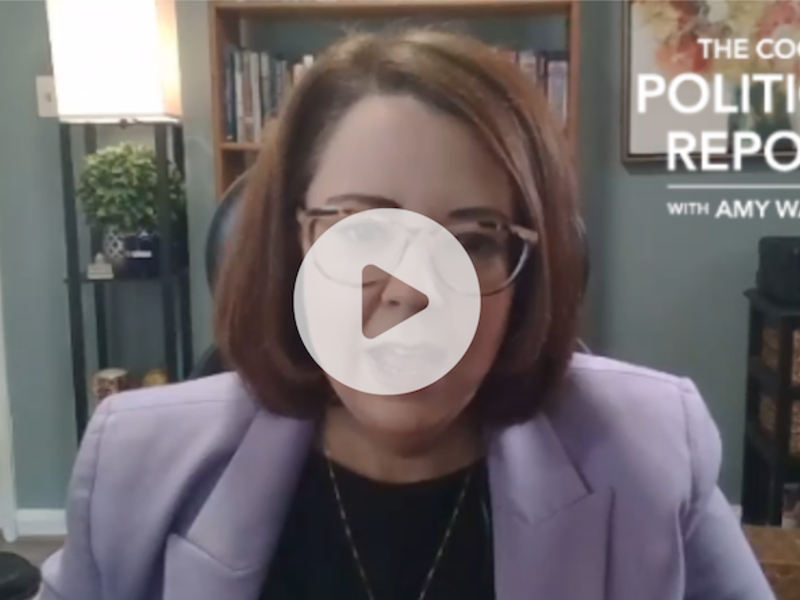
Some on the left say the Democrats’ path to a House majority next year is to nominate passionate liberals who can tap into the energy and excitement that Bernie Sanders generated last year. Moderates say the path is down the middle, nominating pragmatists whom swing voters won’t find threatening. Still others suggest that Democrats nominate veterans, women, and other nonpoliticians who can tap into the antiestablishment, antipolitician sentiment that is so potent right now. All of the advice was a kind of political Rorschach test: People tend to argue for types of candidates who comport with their own views.
The advice for Democrats that has made the most sense to me was offered by Democratic operative Jesse Ferguson in an essay last week for Time. He wrote that “Everyone is right. And everyone is wrong. The idea that any one-size-fits-all candidate background or platform will succeed in the midterms fundamentally misinterprets what American voters want. They don’t think in labels when it comes to who they want to represent them in Congress.”
Ferguson knows something about congressional races. He’s a former deputy executive director of the Democratic Congressional Campaign Committee who later ran the independent expenditures effort for DCCC. But as deputy national press secretary for Hillary Clinton’s 2016 presidential campaign, Ferguson also experienced what it’s like to be in a campaign whose candidate never really defined herself as who she really was.
Ferguson goes on to argue, “These days, voters start with a presumption of dishonesty and self-interested motivation from their candidates, and the burden is on the candidates to disprove it. More than that, voters need to believe not just what the candidate wants to do but why they are doing it. …Voters have to believe in the individual candidate—the person themselves—whoever they are.”
Ferguson points to a little-known Democratic House candidate exceeding expectations last month in a South Carolina special election, winning 48 percent in a district that Trump carried last year by almost 60 percent. His near-victory prompted some Democrats to blame national party officials for not concentrating resources on his race. Ironically, that might have been worse; he was able to run apart from the Democratic Party. Who was the Democrat? As Ferguson described him, Archie Parnell is a “nerdy” tax lawyer and “former top executive at Goldman Sachs.” No one argues that Democrats focus their recruiting on Goldman’s headquarters building, but it does suggest that Ferguson is right that no single job description fits every district.
“The premium is on candidates who embrace their own backgrounds, giving voters a reason to believe they are who they say they are, and they’ll do what they say they will—candidates who are authentically themselves,” Ferguson wrote.
The idea that candidates should run as who they are, not as who they pretend to be, is a strong one. As Ferguson put it, “Sure, it would be great to run political outsiders—people steeped in progressive values and committed to resisting Trump. But those candidates shouldn’t run ads championing their commitment to cutting spending or eliminating government waste. The message does not match their experience.”
At the same time, Ferguson, wrote, “Successful small-business owners make great candidates, too. They’ve balanced the books, made payroll and demonstrated that they understand fiscal responsibility. But those candidates shouldn’t tout themselves as resistance heroes and progressive champions whose first priority is a more expansive government. No one thinks that is who they are or what they stand for.”
Ferguson added, “A candidate who has been a state senator for 15 years—one who has amassed an impressive record of legislative accomplishments on health care or tax policy—shouldn’t try to run as a political outsider. It can be okay to be a career politician. Find a message that works within that identity: being a career politician with a record of accomplishment proves that this candidate can actually accomplish things that matter to the voters in that district. Voters will believe that, too.”
But you’d better be what you say you are. “If a candidate who’s never thought about fiscal responsibility thinks she should focus on that issue because polling indicates it is a priority for voters, she should stop right there. If a candidate wants to pretend to be a political outsider after 20 years in office because he thinks that’s what the people want, he’s making a mistake.”
“In the end,” Ferguson concluded, “there is no magic wand to create the type of candidate Democrats need to win in 2018—no perfect biography or policy agenda that will unlock the keys to those 24 districts needed to take control of Congress away from Trump. The surest path to victory in this uncertain political climate lies within an adapted version of Shakespeare’s wise words: to thine own self, and to thine voters, be true.”
This story was originally published on nationaljournal.com on July 17, 2017
Image: AP Images










Subscribe Today
Our subscribers have first access to individual race pages for each House, Senate and Governors race, which will include race ratings (each race is rated on a seven-point scale) and a narrative analysis pertaining to that race.